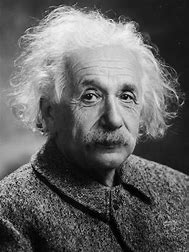INTP personality types are logical, analytical and adaptable, with the ability to respond to new opportunities as they come along.
Note: This is a resource page on INTP- there are 16 Types of MBTI personalities. Find out which are you. This resource page is frequently referred to in our MBTI Teambuilding Workshops to help participants get more information about their MBTI Type.
INTP stands for introverted, intuitive, thinking, and perceiving. It is one of the Myers-Briggs Type Indicator’s 16 personality types (MBTI). INTP personalities are often described as quiet and analytical. They enjoy spending time alone, contemplating how things work and devising solutions to problems.
INTPs have a rich inner world and prefer to focus on their internal thoughts rather than the external world. They usually do not have a large social circle, but they are close to a small group of people. For illustration, one of the most famous INTP persons is Albert Einstein

Many famous inventors and scientists through the ages have had INTP personalities but this unique style of problem-solving is useful to almost any type of industry.
According to psychologist David Keirsey, creator of the Keirsey Temperament Sorter, approximately 1% to 5% of people have an INTP personality type.
Key INTP Characteristics
INTPs are reserved, quiet, and thoughtful. They prefer to socialize with a small group of close friends with whom they share common interests and connections because they are introverts.
An INTP values intellect over emotion and enjoys thinking about theoretical concepts. They are logical, making decisions based on objective data rather than subjective feelings.
An INTP is highly logical and objective when analyzing data and making decisions.
INTPs are known for their adaptability and ability to think “outside the box.”
INTP personality types consider the big picture rather than focusing on every minor detail.
INTPs prefer to keep their options open and dislike being constrained by structure and planning.
Potential development areas for INTPs
INTPs may struggle to work in teams, especially with others who they perceive to be illogical or insufficiently task-focused. They may have no clear sense of direction and may overlook important facts or practical details.
INTP Personal Relationships
INTPs, as introverts, prefer to spend most of their time alone. Introverts must expend energy in social situations, as opposed to extroverts, who gain energy from interacting with a diverse group of people. 3
INTPs may feel the need to be alone after being around a lot of people to recharge and find balance. While they may be reserved around strangers, INTPs are warm and friendly with their immediate family and friends.
Because INTPs enjoy solitude and deep thought, they can appear aloof and detached to others. People with this personality type can become lost in their own thoughts and lose sight of the outside world at times. INTPs are passionate about ideas and place a high value on intelligence and knowledge.
INTPs are generally laid-back and tolerant in social situations. When their beliefs or convictions are challenged, they can become unyielding. Because of their strong emphasis on logic, INTPs may find it difficult not to correct others when their arguments aren’t rational or logical. INTPs can be difficult to persuade because they rely on their own minds.
INTP Compatibility in Relationships
INTP personalities are more compatible with ENTJ, ESTJ, or ENTP personalities, potentially making them good marriage partners. An INTP, on the other hand, may clash with an ISFJ or ESFJ.
INTP Career Opportunities
INTPs excel in science-related careers because they enjoy theoretical and abstract concepts. They are logical and have strong reasoning abilities, but they are also excellent at creative thinking.
INTPs can be quite independent and place a high value on personal freedom and autonomy. They can be aggravated in some cases by authority figures, particularly those who they believe are attempting to suppress their ability to think and act for themselves. As a result, INTPs thrive in jobs that require a high level of flexibility and independence.
INTPs tend to appreciate occupations in technical and scientific fields, and gain expert knowledge. They work best in an environment that offers time and space to concentrate without interruption, and which doesn’t pressure people to work in teams or attend lots of meetings. Jobs that might appeal to INTPs include architect, researcher and social scientist.
Contact us for MBTI Leadership Development or MBTI Team Building Workshop or MBTI LunchTime Talk or one to one coaching
To find out more about MBTI Types: Read Resource Page on 16 MBTI Types
For detailed reading of each of the 16 MBTI types, please click below. Enjoy!
